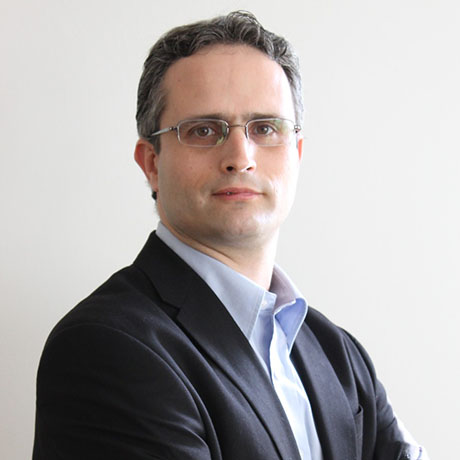Professor of Pathology, Harvard Medical School
Director of Bioinformatics, Mass General Brigham Cancer Institute and Department of Pathology
Director of Cancer Bioinformatics, Core Institute Member, Broad Institute of Harvard and MIT
Paul Zamecnik, MD Endowed Chair in Oncology Basic Research, Mass General Brigham Cancer Institute
Contact email:
ggetz1@mgh.harvard.edu
Affiliations
Krantz Awards Recipient
2023 and 2024 Spark Awards
Learn more about the Krantz Awards
Overview
The Getz laboratory is focused on cancer genome analysis, which includes two major steps: (i) Characterization – cataloging of all genomic events and the mechanisms that created them during the clonal evolution of cancer (starting from normal cells and progressing to premalignancy, primary cancer, and emergence of resistance), comparing events at the DNA, RNA, and protein levels between one or more tumor and normal samples from an individual patient; and (ii) Interpretation – analysis of the characterization data across a cohort of patients with the aim of identifying the alterations in genes and pathways that drive cancer progression, drive resistance, or increase its risk as well as identifying molecular subtypes of the disease, their markers, and relationship to clinical variables. Recently, the Getz lab is also studying the tumor and its immune microenvironment using both bulk and single-cell RNA-sequencing (RNA-seq) data. In addition to developing tools for high throughput analysis of cancer data and experimentally testing the findings, the Getz lab develops computer platforms that enable largescale analytics and visualization.
Read more about the Getz Lab from the Krantz Family Center for Cancer Research Annual Report and the Pathology Basic Science Research Brochure.
Selected Publications
Bibliography of Gad Getz via PubMed
Geffen Y, Anand S, Akiyama Y, Getz G. Pan-cancer analysis of post-translational modifications reveals shared patterns of proterin regulation. Cell. 2023 Aug 31;186(18):3945-3967.e26.
Ravi A, Hellmann MD, Arniella MB, ..., Hacohen N, Getz G, Gainor JF. Genomic and transcriptomic analysis of checkpoint blockade response in advanced non-small cell lung cancer. Nat Genet. 2023 May;55(5):807-819.
Parry EM, Leshchiner I, Guièze R,..., Stilgenbauer S, Getz G, Wu CJ. Evolutionary history of transformation from chronic lymphocytic leukemia to Richter syndrome. Nat Med. 2023 Jan;29(1):158-169.

